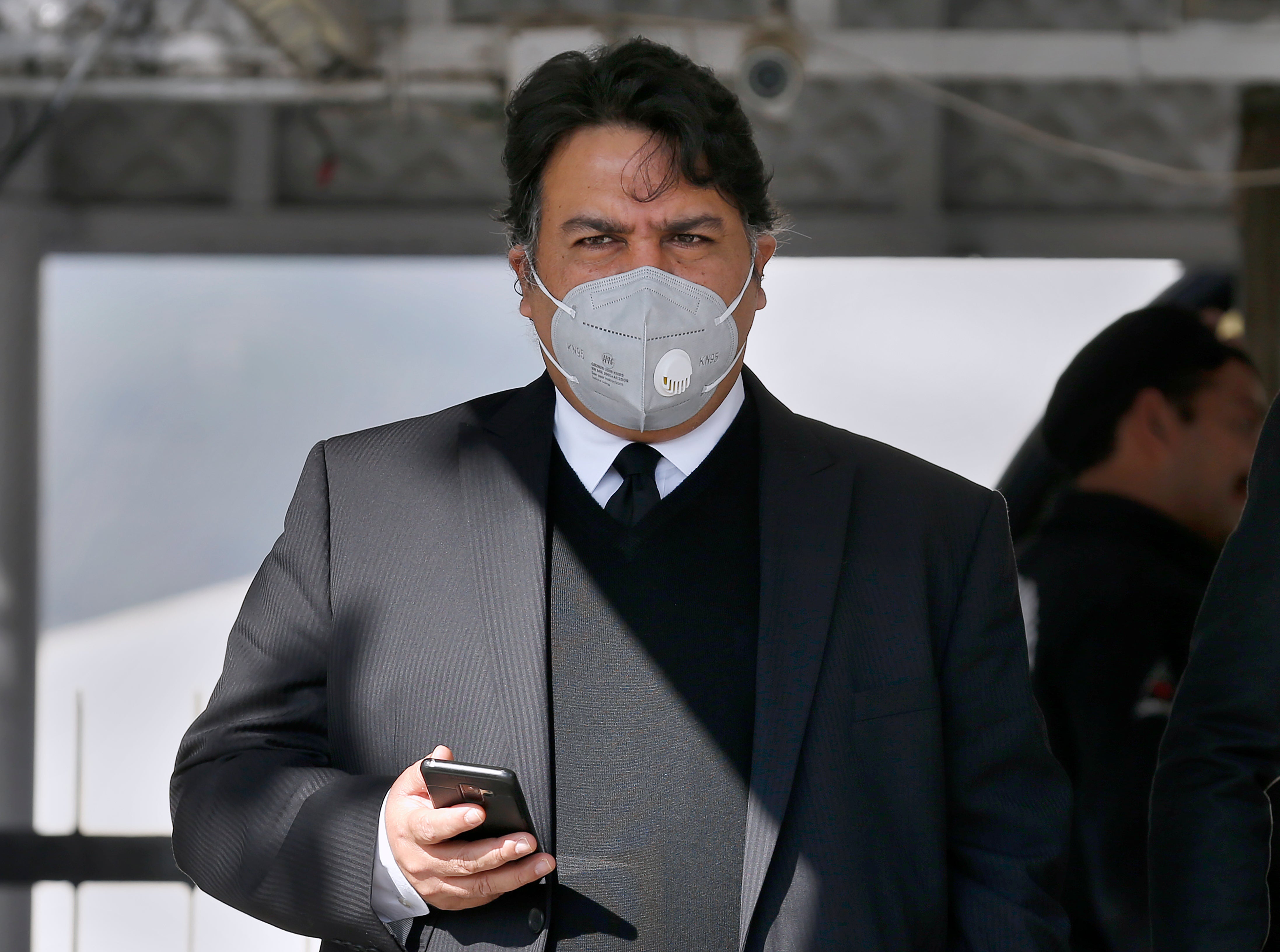Lawyer for Daniel Pearl's family faces uphill legal fight
The Pakistani lawyer for the family of slain American journalist Daniel Pearl is facing an uphill legal battle

Your support helps us to tell the story
From reproductive rights to climate change to Big Tech, The Independent is on the ground when the story is developing. Whether it's investigating the financials of Elon Musk's pro-Trump PAC or producing our latest documentary, 'The A Word', which shines a light on the American women fighting for reproductive rights, we know how important it is to parse out the facts from the messaging.
At such a critical moment in US history, we need reporters on the ground. Your donation allows us to keep sending journalists to speak to both sides of the story.
The Independent is trusted by Americans across the entire political spectrum. And unlike many other quality news outlets, we choose not to lock Americans out of our reporting and analysis with paywalls. We believe quality journalism should be available to everyone, paid for by those who can afford it.
Your support makes all the difference.The Pakistani lawyer for the family of slain American journalist Daniel Pearl faces an uphill battle to overturn the acquittal of a British-born man convicted in the 2002 murder.
That's because the prosecutor in the original case tried all four men — including Ahmed Omar Saeed Sheikh, the man believed to have lured Pearl to his death — as one, with the same charges against all even though each played a different role.
In an interview with The Associated Press on Friday, Faisal Siddiqi, the lawyer for Pearl’s family, said that although the initial prosecution had painted the four defendants with the same brush, “You don’t, because of doubt in one or two or three pieces (of evidence), acquit them all.”
The four men were acquitted in April on the grounds that the initial prosecution’s evidence was insufficient. Siddiqi said his argument now before the Supreme Court, Pakistan's highest, is that conspiracy, kidnapping for ransom and murder deserve separate consideration.
Siddiqi said the Supreme Court hearing to overturn the acquittals will resume Tuesday, and most likely reach its conclusion before the end of January. Both the Pearl family as well as Pakistan’s government separately have appealed the acquittals.
Siddiqi said overturning even the kidnapping for ransom charge would send Sheikh back to death row, where he'd been since his conviction in 2002. He was transferred to a jail in the port city of Karachi in Sindh province, after the Sindh High Court overturned his conviction. The three others charged in Pearl's murder — Fahad Naseem, Adil Sheikh and Salman Saqib — were acquitted on all charges.
Sheikh was sentenced to death, and the other three to life in prison for their roles in Pearl's murder.
Siddiqi said he’s argued that the judges have a duty to both the accused and the victim, and while “no innocent person should be convicted ... no guilty person should be set free.”
The Pearl family’s lawyer said the overwhelming sentiment is “whenever there is a doubt, let us free the accused, never thinking what happened to the victim,” adding that he's asking the judges to “restore the balance between the accused and the victim.”
The acquittal outraged the United States, and last month the U.S. warned it won’t allow Sheikh to escape justice. Acting U.S. Attorney General Jeffery Rosen praised Pakistan for appealing the Sindh court’s order but said if “those efforts do not succeed, the United States stands ready to take custody of Omar Sheikh to stand trial” in America.
Sheikh remains in jail even as the Sindh High Court last month ordered him freed while the appeal is being heard. Sheikh's lawyer, Mehmood A. Sheikh, no relation, has taken the demand for his client's freedom to the Supreme Court. Until now it has not ruled on the release.
Siddiqi said the prosecutor in Sheikh's original trial was held under considerable duress caused by militant Islamists, who issued threats to the attorney general, and which even forced the court hearing to be held within the confines of the jail.
Sheikh was convicted of helping lure Pearl to a meeting in Karachi, where he was kidnapped. Pearl had been investigating the link between Pakistani militants and Richard C. Reid, dubbed the “Shoe Bomber” after trying to blow up a flight from Paris to Miami with explosives hidden in his shoes.
A gruesome video of Pearl’s beheading was sent to the U.S. Consulate. The 38-year-old Wall Street Journal reporter from Encino, California was abducted Jan. 23, 2002.